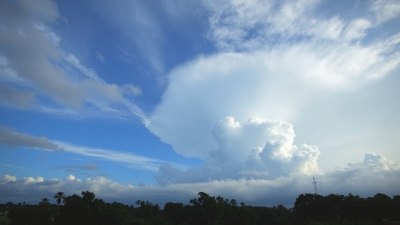How Weather Helped Shape Famous Battles in History
Explore how weather conditions influenced key battles throughout history and their outcomes.

Weather has played a crucial role in the course of human history, influencing not only the daily lives of people but also the outcomes of wars and battles. Its impact can be profound, shaping strategies, altering troop movements, and affecting morale. This article delves into various significant battles in history where weather played a pivotal role.
The Battle of Waterloo (1815)
The Battle of Waterloo, fought on June 18, 1815, marked the end of the Napoleonic Wars and ultimately led to the downfall of Napoleon Bonaparte. The weather conditions preceding this critical battle were vital. Heavy rains in the days leading up to the battle turned the battlefield into a muddy quagmire, slowing down the movements of Napoleon's forces. The muddy terrain hindered the effective deployment of artillery and cavalry, making charging difficult. This played to the advantage of the Duke of Wellington and his allied forces, who were better prepared for the conditions. As a result, the weather was a key factor in the decisive defeat that Napoleon faced.
The Battle of Gettysburg (1863)
The Battle of Gettysburg, fought from July 1 to July 3, 1863, during the American Civil War, is often considered the turning point of the conflict. The weather during this battle was markedly hot and humid, which had a significant impact on the soldiers’ performance. Union General George Meade's forces benefitted from elevated positions and a terrain that would aid their defense, but the heat took a toll on both sides. Troops suffered from heat-related illnesses, and the oppressive conditions affected morale and cohesion within units. The eventual victory of the Union side was not just a result of strategy but also the effects of weather on troop readiness and performance.
The Battle of Stalingrad (1942-1943)
One of the deadliest battles in history, the Battle of Stalingrad was fought between Nazi Germany and the Soviet Union from August 23, 1942, to February 2, 1943. The brutal winter weather played a crucial role in the outcome of this confrontation. As the Nazis advanced into Stalingrad, they were unprepared for the severe cold that gripped the region. German troops faced freezing temperatures, snow, and icy winds, which severely hampered their operations. On the other hand, Soviet soldiers, accustomed to the harsh winter conditions, were able to regroup and launch a counter-offensive. The snow and cold weather contributed to significant German losses, ultimately leading to a decisive Soviet victory.
The Battle of the Bulge (1944-1945)
The Battle of the Bulge, the last major German offensive campaign on the Western Front during World War II, took place in the winter of 1944-1945. The battle is notable not only for its strategic implications but also for the extreme weather that characterized the conflict. A surprise German attack began on December 16, 1944, when thick clouds and snow obscured Allied aircraft, rendering them nearly useless. The harsh winter conditions caught Allied forces off guard, creating confusion and contributing to initial German successes. However, as the weather cleared after a few brutal weeks, Allied air support became available again. This shift allowed the Allies to regroup and ultimately halt the German advance, turning the tide of the battle.
The Siege of Vicksburg (1863)
The Siege of Vicksburg, part of the American Civil War, lasted from May 18 to July 4, 1863, and was a significant turning point in the war. Weather conditions greatly impacted the siege strategy employed by Union General Ulysses S. Grant. Heavy rains in the late spring and early summer created a muddy landscape, hindering the movement and supply of Confederate troops defending the city. Grant’s forces took advantage of this by performing siege operations that slowly wore down the Confederate defenders. The prolonged rain also restricted the Confederates’ ability to receive reinforcements and supplies. The weather helped Grant achieve a significant victory that split the Confederacy and gave the Union control of the Mississippi River.
The Battle of Austerlitz (1805)
The Battle of Austerlitz, known as the Battle of the Three Emperors, was fought on December 2, 1805, and is considered one of Napoleon’s greatest victories. The decisive factor was the weather, as Napoleon used a dense morning fog to disguise his troop movements. The poor visibility played a critical role in disorienting the Allied forces of Russia and Austria. Napoleon’s strategic planning took advantage of the weather, luring his enemies into a trap before delivering a decisive attack. The cold and fog helped facilitate the surprise strategy that led to a brilliant victory, demonstrating how weather can be manipulated in warfare.
The Battle of the Somme (1916)
The Battle of the Somme, one of the largest battles of World War I, took place from July 1 to November 18, 1916. Weather played a critical role in the battle's progress and the conditions in which the troops fought. The summer was marked by heavy rainfall, which transformed the battlefield into a quagmire. The mud and rain hindered troop movements and logistics, sapping the strength of both British and German forces. The weather not only made artillery movements difficult but also created challenges for medics trying to care for the wounded. Despite its high casualties, the battle ultimately led to a strategic advantage for the Allies due to the wear on the German forces caused by the prolonged harsh conditions.
The Battle of Marathon (490 B.C.)
The Battle of Marathon, a pivotal conflict of the Greco-Persian Wars, was fought in 490 B.C. on a hot August day. The heat during the battle played a crucial role in the results, as the Athenian soldiers were able to utilize their knowledge of the terrain to their advantage in the sweltering conditions. The Persian forces, although numerically superior, suffered greatly from exhaustion due to the heat. The Athenians’ tactical advantage, combined with the physical toll of the environment on their enemies, resulted in a significant Greek victory that defined their quest for independence.
The Battle of Hastings (1066)
The Battle of Hastings, fought in 1066, was a decisive conflict between the Norman-French army and the English forces. Although reports of weather conditions are scarce, prevailing conditions likely influenced the battle’s outcome. The Norman cavalry, who needed firm ground for effective movement, benefitted from dry weather the days before the battle. This gave the Normans a tactical edge, allowing their cavalry to maneuver effectively against the English infantry. The weather and terrain played a subtle yet essential role in enabling the Normans to achieve victory, leading to significant changes in English history.
In examining these pivotal battles, it is clear that weather can dramatically affect the outcomes of historical conflicts. Whether through influencing troop morale, altering strategic plans, or shaping battlefield conditions, weather remains one of the many uncontrollable variables that can turn the tide of war. The stories of these battles illustrate the importance of understanding environmental factors in military history, and how the interplay between man and nature has continued to shape the world as we know it.











